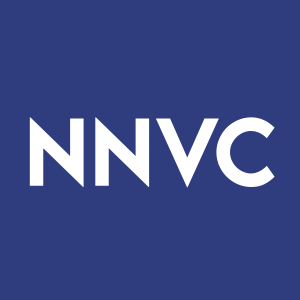NanoViricides Executes an Agreement Encompassing All Antiviral Drug Treatments With Theracour, Including “Trojan Horse” Drugs
Rhea-AI Summary
NanoViricides has signed a Memorandum of Understanding (MoU) with TheraCour Pharma, granting it a right of first refusal (ROFR) for all antiviral drug developments. This agreement, made on September 23, 2024, includes intellectual property rights for developing treatments against any viral infections.
The company's lead drug, NV-387, has shown promising results in animal studies against various viruses and is set to enter Phase II clinical trials for diseases like RSV, Influenza, Bird Flu, COVID, and MPOX/Smallpox. Additionally, the company has developed 'Trojan Horse' drugs that can target multiple stages of a virus's lifecycle.
This MoU allows NanoViricides to rapidly develop new antiviral drugs, even for unforeseen viruses, and negotiate licenses for specific antiviral fields. The nanoviricide technology aims to revolutionize antiviral treatments by mimicking host cells to destabilize viruses.
Positive
- NanoViricides obtained a right of first refusal (ROFR) for all antiviral developments from TheraCour Pharma.
- The MoU includes intellectual property rights for developing treatments against any viral infections.
- NV-387 has shown promising results in animal studies and is set to enter Phase II clinical trials for multiple viral diseases.
- The company developed 'Trojan Horse' drugs targeting multiple stages of a virus's lifecycle.
Negative
- None.
News Market Reaction 1 Alert
On the day this news was published, NNVC gained 5.19%, reflecting a notable positive market reaction.
Data tracked by StockTitan Argus on the day of publication.
SHELTON, CT / ACCESSWIRE / September 26, 2024 / NanoViricides, Inc. (NYSE American.:NNVC) (the "Company"), a clinical stage global leader in broad-spectrum antiviral nanomedicines, reports today that it has now obtained a right of first refusal (ROFR) for all antiviral drug developments from the R&D firm TheraCour Pharma, Inc. ("TheraCour").
NanoViricides has signed a broad Memorandum of Understanding Agreement (MoU) with TheraCour encompassing all antiviral drugs developments on September 23, 2024, an important step that provides the Company certain intellectual property rights for developing treatments against any viral infections.
NV-387, the Company's lead drug, is proving to be a revolutionary drug that has demonstrated strong effectiveness, surpassing existing drugs, against a number of distinctly different types of viruses in animal studies. With this MoU in place, the increasing number of antiviral indications of a broad-spectrum drug such as NV-387 can be quickly and easily discovered and added by the Company to its portfolio of drugs in its development pipeline.
In addition to NV-387, certain "Trojan Horse" drugs that can completely cure most viral infections by attacking the virus lifecycle in multiple ways have been developed by the Company. This MoU expands NanoViricides Inc's abilities to opportunistically and rapidly develop such drugs to treat viral infections of public health importance, even for those viruses that don't exist today and cannot be predicted.
The new MoU provides NanoViricides with the ability to rapidly progress in such new endeavors and provides the important intellectual property rights to further develop multiple drug candidates towards a multitude of antiviral applications, many of which may have been previously considered to be intractable.
The MoU also codifies the process by which the two parties negotiate licenses to specific antiviral fields. As in the past, a license would not be restricted to a single drug, but rather would encompass all drugs that can be conceivably applicable with the R&D performed against the licensed field of antiviral application.
The revolutionary nanoviricide technology resulting in host-mimetic, direct-acting antiviral drugs is opening up a new era of treating viral infections just as penicillin opened up a new era and revolutionized the treatment of bacterial infections, enabling "one drug - many bugs" model instead of the current "one bug - one drug" model. NV-387, an example of the capabilities of nanoviricide technology, was developed in 2020 in response to the COVID pandemic and has completed a Phase I human clinical trial successfully. The Company is now planning for NV-387 to enter into Phase II clinical trials for evaluation of its efficacy against several viral diseases that include RSV, Influenza, Bird Flu, COVID, as well as MPOX/Smallpox infections.
What is a "nanoviricide"?
A "nanoviricide" is a uniform polymer that self-assembles into nanoscale droplets called "micelles", that carries on its surface mimics of the cell-side receptor of the virus, and that hides in its belly lipid tentacles. It can also hold other guest APIs in its belly if needed. The nanoviricide thus "looks like" a cell to the virus, and the virus is fooled into binding it. Once the virus binds, we believe, the flexible and shape-shifting nanoviricide micelle would spread over the virus particle by virtue of merging the lipid tentacles that are hidden in its belly into the virus surface, in a well known process called "lipid-lipid mixing." We believe this would destabilize the virus particle, uproot the viral glycoproteins required for binding to and entering the host cell, and thus render the virus particle incapable of infecting a cell.
What are "Trojan Horse" nanoviricide drugs?
A nanoviricide can hide in its "belly" (i.e. encapsulates) one or more drugs that can attack the virus in other ways. The nanoviricide holding the drugs is expected to attack the virus particle itself and thus block the virus from infecting cells. We call this "Re-Infection Inhibition". The encapsulated drug can be protected from host's metabolism and delivered into infected cells to block the virus from replicating inside the cell. If both of these parts of the virus lifecycle are blocked, the viral infection would be cured, except in the case of viruses that create latency. A different encapsulated drug can also be delivered to attack the virus in its latent or dormant phase, although this has been a topic of scientific research rather than drug development as of now. Thus the "Trojan Horse" capability of a naoviricide enables developing drug that can cure most virus infections, and can be developed in the future to cure even viruses that cause latency such as herpesviruses and HIV/AIDS that are non-curable at present.
TheraCour is founded by and substantially owned by Dr. Anil R. Diwan, who is also the Company's
co-founder. Dr. Diwan recused himself from the MoU discussions that were led by the Company's Board of Directors in conjunction with legal advice from the Company's counsel.
NanoViricides, Inc. (the "Company") ( www.nanoviricides.com ) is a development stage company that is creating special purpose nanomaterials for antiviral therapy. The Company's novel nanoviricide™ class of drug candidates and the nanoviricide™ technology are based on intellectual property, technology and proprietary know-how of TheraCour Pharma, Inc. The Company has a Memorandum of Understanding with TheraCour for the development of drugs based on these technologies for all antiviral infections. The MoU does not include cancer and similar diseases that may have viral origin but require different kinds of treatments.
The Company has obtained broad, exclusive, sub-licensable, field licenses to drugs developed in several licensed fields from TheraCour Pharma, Inc. The Company's business model is based on licensing technology from TheraCour Pharma Inc. for specific application verticals of specific viruses, as established at its foundation in 2005.
Our lead drug candidate is NV-387, a broad-spectrum antiviral drug that we plan to develop as a treatment of RSV, COVID, Long COVID, Influenza, and other respiratory viral infections, as well as MPOX/Smallpox infections. Our other advanced drug candidate is NV-HHV-1 for the treatment of Shingles. The Company cannot project an exact date for filing an IND for any of its drugs because of dependence on a number of external collaborators and consultants. The Company is currently focused on advancing NV-387 into Phase II human clinical trials.
NV-CoV-2 (API NV-387) is our nanoviricide drug candidate for COVID-19 that does not encapsulate remdesivir. NV-CoV-2-R is our other drug candidate for COVID-19 that is made up of NV-387 with remdesivir encapsulated within its polymeric micelles. The Company believes that since remdesivir is already US FDA approved, our drug candidate encapsulating remdesivir is likely to be an approvable drug, if safety is comparable. Remdesivir is developed by Gilead. The Company has developed both of its own drug candidates NV-CoV-2 and NV-CoV-2-R independently.
The Company is also developing drugs against a number of viral diseases including oral and genital Herpes, viral diseases of the eye including EKC and herpes keratitis, H1N1 swine flu, H5N1 bird flu, seasonal Influenza, HIV, Hepatitis C, Rabies, Dengue fever, and Ebola virus, among others. NanoViricides' platform technology and programs are based on the TheraCour® nanomedicine technology of TheraCour, which TheraCour licenses from AllExcel. NanoViricides holds a worldwide exclusive perpetual license to this technology for several drugs with specific targeting mechanisms in perpetuity for the treatment of the following human viral diseases: Human Immunodeficiency Virus (HIV/AIDS), Hepatitis B Virus (HBV), Hepatitis C Virus (HCV), Rabies, Herpes Simplex Virus (HSV-1 and HSV-2), Varicella-Zoster Virus (VZV), Influenza and Asian Bird Flu Virus, Dengue viruses, Japanese Encephalitis virus, West Nile Virus, Ebola/Marburg viruses, and certain Coronaviruses. The Company intends to obtain a license for RSV, Poxviruses, and/or Enteroviruses if the initial research is successful. As is customary, the Company must state the risk factor that the path to typical drug development of any pharmaceutical product is extremely lengthy and requires substantial capital. As with any drug development efforts by any company, there can be no assurance at this time that any of the Company's pharmaceutical candidates would show sufficient effectiveness and safety for human clinical development. Further, there can be no assurance at this time that successful results against coronavirus in our lab will lead to successful clinical trials or a successful pharmaceutical product.
This press release contains forward-looking statements that reflect the Company's current expectation regarding future events. Actual events could differ materially and substantially from those projected herein and depend on a number of factors. Certain statements in this release, and other written or oral statements made by NanoViricides, Inc. are "forward-looking statements" within the meaning of Section 27A of the Securities Act of 1933 and Section 21E of the Securities Exchange Act of 1934. You should not place undue reliance on forward-looking statements since they involve known and unknown risks, uncertainties and other factors which are, in some cases, beyond the Company's control and which could, and likely will, materially affect actual results, levels of activity, performance or achievements. The Company assumes no obligation to publicly update or revise these forward-looking statements for any reason, or to update the reasons actual results could differ materially from those anticipated in these forward-looking statements, even if new information becomes available in the future. Important factors that could cause actual results to differ materially from the company's expectations include, but are not limited to, those factors that are disclosed under the heading "Risk Factors" and elsewhere in documents filed by the company from time to time with the United States Securities and Exchange Commission and other regulatory authorities. Although it is not possible to predict or identify all such factors, they may include the following: demonstration and proof of principle in preclinical trials that a nanoviricide is safe and effective; successful development of our product candidates; our ability to seek and obtain regulatory approvals, including with respect to the indications we are seeking; the successful commercialization of our product candidates; and market acceptance of our products.
The phrases "safety", "effectiveness" and equivalent phrases as used in this press release refer to research findings including clinical trials as the customary research usage and do not indicate evaluation of safety or effectiveness by the US FDA.
FDA refers to US Food and Drug Administration. IND application refers to "Investigational New Drug" application. cGMP refers to current Good Manufacturing Practices. CMC refers to "Chemistry, Manufacture, and Controls". CHMP refers to the Committee for Medicinal Products for Human Use, which is the European Medicines Agency's (EMA) committee responsible for human medicines. API stands for "Active Pharmaceutical Ingredient". WHO is the World Health Organization. R&D refers to Research and Development.
Contact:
NanoViricides, Inc.
info@nanoviricides.com
Public Relations Contact:
ir@nanoviricides.com
SOURCE: NanoViricides, Inc.
View the original press release on accesswire.com







